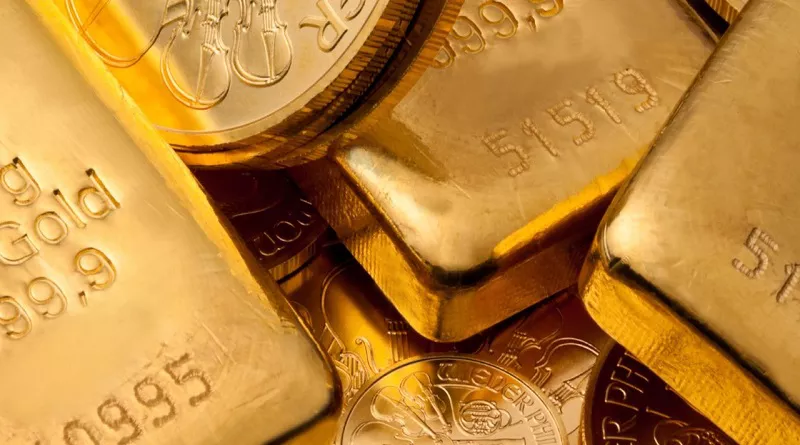In the world of investments, there are few assets as revered and sought after as gold and Bitcoin. Both have garnered significant attention from investors seeking to diversify their portfolios and potentially achieve substantial returns. While gold has been a traditional store of value for centuries, Bitcoin is a relatively new player in the financial market. In this article, we’ll explore the pros and cons of investing in gold futures and Bitcoin, helping you make an informed decision about which might be the better investment for you.
Gold Futures: Time-Tested Stability
Gold, often referred to as the “yellow metal,” has been valued for its beauty and rarity for thousands of years. It has served as a currency, a symbol of wealth, and a safe haven during times of economic uncertainty. One way to invest in gold is through gold futures contracts, which allow you to buy or sell gold at a predetermined price on a specified future date.
Pros of Gold Futures:
Historical Stability: Gold has a long history of maintaining its value over time. During economic downturns and periods of high inflation, gold has often outperformed other investments.
Tangible Asset: Gold is a physical asset, which means you can hold it in your hand if you choose to. This tangibility provides a sense of security for some investors.
Diversification: Investing in gold futures can help diversify your portfolio, reducing overall risk.
Cons of Gold Futures:
Storage and Insurance Costs: If you take physical possession of gold, you’ll need to account for storage and insurance costs, which can eat into your returns.
Limited Utility: Unlike Bitcoin, gold doesn’t have a wide range of practical applications beyond its use in jewelry and a few industrial processes.
Market Volatility: While gold is generally stable, it’s not immune to market fluctuations. Prices can still rise and fall, impacting the value of your investment.
Bitcoin: The Digital Gold
Bitcoin, on the other hand, is a relatively new digital asset that emerged in 2009. It’s often referred to as “digital gold” because, like gold, it’s decentralized, finite in supply, and seen as a store of value by many.
Pros of Bitcoin:
High Growth Potential: Bitcoin has shown the potential for astronomical growth. Many early investors in Bitcoin have seen substantial returns on their investments.
Accessibility: Buying and holding Bitcoin is relatively easy, and it’s accessible to anyone with an internet connection, making it highly inclusive.
Decentralization: Bitcoin operates on a decentralized blockchain, making it resistant to government control and censorship.
Cons of Bitcoin:
Volatility: Bitcoin is known for its extreme price volatility, which can lead to substantial gains or losses in a short period.
Lack of Regulation: The lack of regulatory oversight can make Bitcoin a riskier investment, as it’s susceptible to fraud and market manipulation.
Limited Adoption: While Bitcoin has gained traction, it is not widely accepted as a mainstream form of payment or investment.
Comparing Gold Futures and Bitcoin
When comparing gold futures and Bitcoin as investment options, it’s essential to consider your investment goals, risk tolerance, and time horizon.
If you’re looking for a stable, long-term investment with a track record of preserving wealth, gold futures may be the better choice. Gold has stood the test of time and is often seen as a hedge against inflation and economic instability. However, it may not offer the same explosive growth potential as Bitcoin.
On the other hand, if you’re willing to tolerate higher volatility and believe in the future of decentralized digital assets, Bitcoin could be the better investment for you. It has the potential for significant returns, but it also comes with higher risk.
Ultimately, the decision between gold futures and Bitcoin depends on your individual circumstances and investment philosophy. Some investors choose to hold both assets to benefit from the diversification they offer.
Frequently Asked Questions
1. Is it a good idea to invest in both gold and Bitcoin?
Investing in both gold and Bitcoin can be a sound strategy for diversification. Gold offers stability and serves as a hedge against economic downturns, while Bitcoin provides the potential for high returns. Combining these assets in your portfolio can help balance risk.
2. What factors should I consider when deciding between gold futures and Bitcoin?
When deciding between gold futures and Bitcoin, consider your investment goals, risk tolerance, and time horizon. If you prioritize stability and wealth preservation, gold may be more suitable. If you’re open to higher risk for potential high rewards and believe in the future of digital assets, Bitcoin might be the better choice.
3. How do I buy and store physical gold or Bitcoin?
To buy physical gold, you can purchase gold coins or bars from reputable dealers or invest in gold exchange-traded funds (ETFs). Storing physical gold requires secure storage facilities or a safety deposit box.
For Bitcoin, you can buy it on cryptocurrency exchanges using fiat currency. It’s typically stored in digital wallets, which can be software-based (online or mobile) or hardware-based (physical devices). Ensure you follow best practices for securing your Bitcoin wallet to prevent theft or loss.
In conclusion, both gold futures and Bitcoin have their unique advantages and disadvantages as investment options. Your choice should align with your financial goals, risk tolerance, and investment strategy. Remember that diversification is often a wise approach to managing investment risk, so you may consider incorporating both assets into your portfolio to harness the strengths of each.

